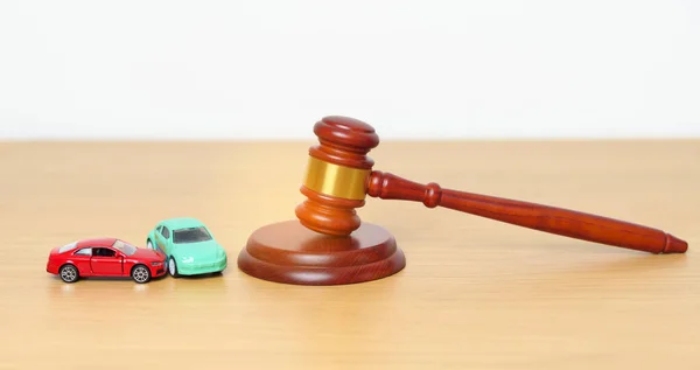Extended warranties and California Lemon Law Lawyer provide essential safeguards for consumers facing issues with faulty vehicles, yet they operate in different manners. It is important for anyone buying or owning a vehicle in California to grasp how these two forms of consumer protection relate to one another.
Understanding an Extended Warranty
An extended warranty, commonly known as a vehicle service contract, is a plan that vehicle owners buy to cover specific repairs and maintenance once the original manufacturer’s warranty has ended. These warranties may be offered by the manufacturer, the dealership, or an independent third-party provider, and they differ significantly in terms of what they cover, how long they last, and their pricing.
Types of Extended Warranties
- Manufacturer’s Extended Warranty: This is an enhancement of the original warranty issued by the vehicle’s manufacturer. Generally, it provides comparable protection to the initial warranty but extends the duration or allows for extra mileage.
- Dealer’s Extended Warranty: Provided by the dealership from which the vehicle was bought, this warranty may include additional or alternative parts compared to the manufacturer’s warranty; however, it frequently imposes limitations on authorized repair locations.
- Third-Party Extended Warranty: Independent companies offer this service, allowing for greater flexibility in terms of coverage choices and repair sites. However, this can lead to increased complexities when it comes to filing claims.
Coverage of an Extended Warranty
Comprehensive warranties can encompass numerous parts of a vehicle, such as the powertrain and electrical systems, among others. Nevertheless, the level of protection varies based on the individual agreement. Certain warranties may focus solely on critical components, whereas others could provide complete coverage from bumper to bumper. It is crucial to examine the details carefully to grasp what is included and excluded, along with any stipulations related to the coverage.
Interaction Between California Lemon Law and Extended Warranties
Key Provisions of the California Lemon Law
The Lemon Law applies to new cars, leased vehicles, and certified pre-owned cars that are still protected by the manufacturer’s original warranty. Furthermore, it may also include vehicles that have an extended warranty from the manufacturer.
For a vehicle to be considered a lemon, it needs to have a significant flaw that greatly affects its usability, worth, or safety. Additionally, the manufacturer or their representatives must have made a sufficient number of attempts to fix this issue without achieving any positive results.
Should the vehicle be classified as a lemon, the manufacturer must either provide a replacement vehicle or issue a refund that covers the entire purchase price, which includes the down payment, monthly installments, and additional costs like taxes and registration fees.
Extended Warranties and Lemon Law Claims
Extended warranties may prove useful if your car begins to have problems after the original manufacturer’s warranty has lapsed. Nevertheless, these warranties might not offer the same degree of coverage as the Lemon Law. Here’s how they relate to one another:
Should your vehicle experience a malfunction after the initial warranty has expired but while still under the protection of an extended warranty, you might still qualify to submit a Lemon Law claim. The crucial element is whether the problem was initially reported while the manufacturer’s warranty was in effect, regardless of whether repairs are being carried out under the extended warranty.
Should the issue continue after several repair efforts covered by an extended warranty, it may bolster a Lemon Law case. Nevertheless, the difficulty typically arises in demonstrating that the defect existed within the manufacturer’s warranty timeframe and that attempts to fix it were unsuccessful.
It’s essential to keep thorough documentation of every repair attempt and all interactions with the warranty provider. This record-keeping can be key in demonstrating that your vehicle qualifies for a Lemon Law claim.
Limitations of Extended Warranties
Extended warranties frequently come with a variety of exclusions and stipulations that may restrict your protection. For instance, certain warranties might not cover items subject to normal wear and tear, pre-existing issues, or particular components.
Extended warranties from third parties can pose significant challenges due to their intricate claims procedures and potential disagreements regarding what is covered. Such complications can hinder a Lemon Law claim, particularly if the third-party provider contests whether the defect falls under the warranty’s terms.
Certain extended warranties impose limitations on the locations where you can get your vehicle serviced. If your warranty permits repairs only at designated sites, this can narrow your choices and possibly prolong the repair timeline, which could impact your Lemon Law case.
Legal Insights: Navigating Extended Warranties and Lemon Law Claims
If you encounter issues with a faulty vehicle, it’s essential to be aware of your rights regarding an extended warranty and the California Lemon Law. Below are some legal perspectives from a Lemon Law attorney:
- Consult Early: Should your vehicle exhibit a recurring issue, it’s advisable to reach out to a Lemon Law attorney San Diego promptly. Seeking advice early on can clarify your rights and guide you toward the most effective steps to take, whether that involves the original manufacturer’s warranty, an extended warranty, or a combination of both.
- Focus on Timeliness: In Lemon Law cases, timing plays a crucial role. The earlier you notify about a defect and seek repairs, the higher your likelihood of a favorable outcome. Postponing repairs or neglecting to record problems quickly can undermine your case.
- Understand Your Warranty: Carefully examine the details of any extended warranty prior to making a purchase. Familiarizing yourself with what is covered, what is not, and the specific conditions will enable you to make knowledgeable choices and steer clear of possible issues when filing claims.
- Maintain Detailed Records: Maintain detailed documentation of all repairs, interactions with the warranty provider, and any associated costs. This documentation is crucial for substantiating your claim and guaranteeing that you benefit from the complete coverage provided by the Lemon Law.
Both extended warranties and the California Lemon Law are designed to safeguard consumers, though they operate in distinct manners. It’s important for individuals dealing with vehicle issues to grasp how these protections relate to one another. By taking initiative, being well-informed, and obtaining legal advice when needed, you can enhance your likelihood of achieving a favorable result, whether that involves filing a warranty claim, pursuing a Lemon Law claim, or utilizing both options.



